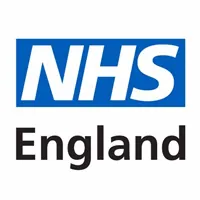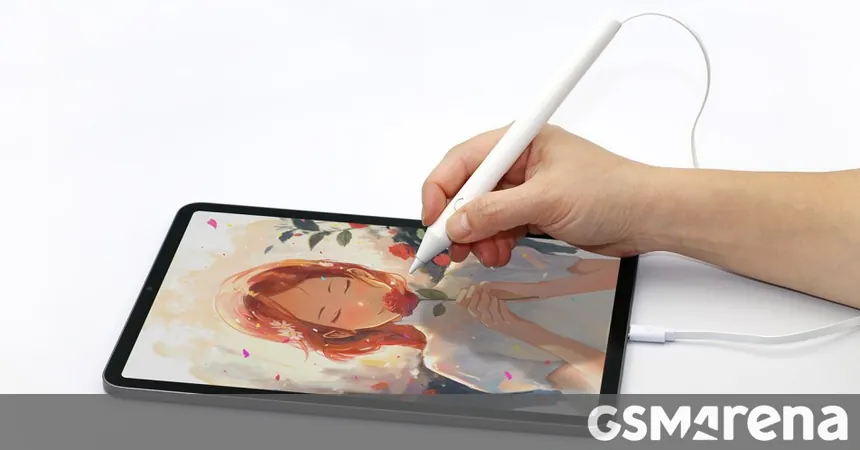
Revolutionizing Diabetes Care: How Digital Eye Screening Could Save Hundreds of Thousands of Hospital Visits!
2024-11-19
Author: Daniel
Introduction
In a groundbreaking initiative to enhance healthcare for people living with diabetes, the NHS is rolling out advanced eye screening technology aimed at preventing life-altering vision loss and drastically reducing the burden on hospitals. This innovative solution could save an astounding 120,000 hospital appointments annually!
The Importance of Regular Eye Screenings
Diabetes can lead to diabetic retinopathy, a serious eye condition caused by elevated blood sugar levels that can inflict irreversible damage on the retina, potentially resulting in blindness if left unchecked. Fortunately, regular eye screenings are crucial for detecting issues early and mitigating risks.
Advancements in Eye Screening Technology
The introduction of Optical Coherence Tomography (OCT) scans signifies a major step forward in diabetes care. With these advanced scans, approximately 60,000 individuals with diabetes who are at heightened risk of eye disease will now have access to screenings outside traditional hospital environments, including larger GP practices, community hospitals, and even mobile clinics travelling throughout the country. This shift will liberate hospital resources for patients who need them the most and significantly optimize patient care.
Economic Impact and Reinvestment
Part of an NHS England initiative aimed at enhancing productivity while maximizing taxpayer value, the new measures have already saved £2 billion in just the first five months of the current financial year. This money is being reinvested in additional patient services, showcasing a commitment to prioritizing public health.
Current Statistics on the Diabetic Eye Screening Programme
Of the four million people registered with the NHS Diabetic Eye Screening Programme, around 3.3 million undergo regular digital screenings every one to two years. OCT technology will now be employed, allowing healthcare professionals to assess patients not only for diabetic retinopathy but also for changes in the eye that standard imaging might miss, such as retinal thickening.
Patient Testimonials
Mike Cypher, 56, a long-time diabetes patient from Cheltenham, shared a testimonial underscoring the importance of this technology: “OCT revealed a significant bleed in my eye that could have severely impacted my vision. I received laser treatment, which prevented possible irreversible damage. If you’re offered this screening, please attend your appointment. OCT could truly save your eyesight.”
Future of OCT Scans in the UK
Historically, access to OCT scans was not uniform across the UK, with less than a third of services offering this advanced technology. However, training programs are now underway for NHS staff to ensure that OCT becomes a standard feature of eye care by next October, making it accessible nationwide.
Reducing NHS Pressure
Ophthalmology is one of the busiest outpatient specialties, accounting for nearly 10% of the NHS waiting list, with over 500,000 eye surgeries and 7.5 million outpatient visits each year. The rollout of OCT scans is expected to significantly alleviate these pressures, projecting an increase in the number of saved hospital appointments.
Official Statements
Steve Russell, NHS National Director for Vaccinations and Screening, hailed the development: “The availability of these advanced eye scans will make a real difference for thousands of diabetes patients and will aid us in early detection and treatment, crucial for preserving sight.”
Echoing this sentiment, Stephen Kinnock, Minister of State for Care, noted, “This initiative exemplifies how a small change can lead to significant improvements. We are committed to transitioning care from hospitals to the community, alleviating congestion in emergency departments and ensuring patients receive timely care closer to home.”
Conclusion
In summary, with cutting-edge OCT technology now increasingly implemented in diabetes care, patients can expect not only better health outcomes but also a more streamlined experience in accessing vital medical services. This transformative approach is paving the way for a future where healthcare is more efficient and patient-focused. Don't miss out on the opportunity for enhanced eye health—schedule your screening today!





 Brasil (PT)
Brasil (PT)
 Canada (EN)
Canada (EN)
 Chile (ES)
Chile (ES)
 España (ES)
España (ES)
 France (FR)
France (FR)
 Hong Kong (EN)
Hong Kong (EN)
 Italia (IT)
Italia (IT)
 日本 (JA)
日本 (JA)
 Magyarország (HU)
Magyarország (HU)
 Norge (NO)
Norge (NO)
 Polska (PL)
Polska (PL)
 Schweiz (DE)
Schweiz (DE)
 Singapore (EN)
Singapore (EN)
 Sverige (SV)
Sverige (SV)
 Suomi (FI)
Suomi (FI)
 Türkiye (TR)
Türkiye (TR)